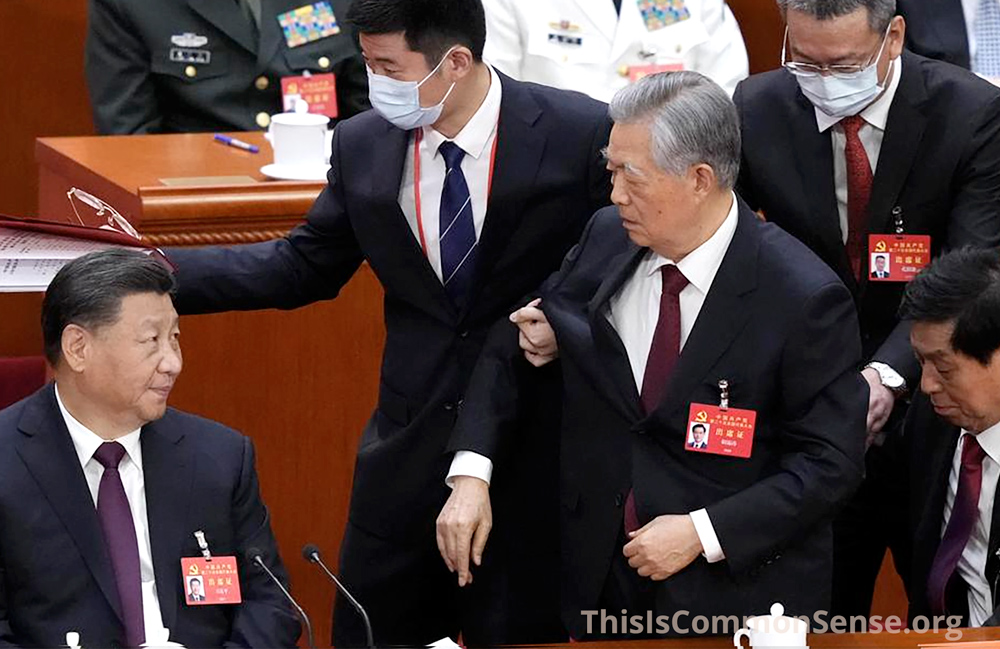This weekend, at the 20th National Congress of the Chinese Communist Party (CCP), a unanimous vote of elite communist party officials gave President Xi Jinping his third five-year term.
But the story that made the headlines focused on the physical removal from the main chamber of Hu Jintao, the previous Chinese leader (2003 – 2013), on the final day. No one is sure what it means, but we cannot unsee the pattern.
“In 10 years of ruling China, Xi Jinping has expunged political rivals, replacing them with allies,” notes The New York Times. “He has wiped out civil society, giving citizens no recourse for help but his government. He has muzzled dissent, saturating public conversation with propaganda about his greatness.”
The Times forgot to mention the genocide against Uyghurs or the full extent of CCP censorship or repression or the stepped-up harassment and threats to invade democratic Taiwan, but the article does convey that Xi is a thug of totalitarian proportions.
“What is happening is potentially very dangerous,” Willy Wo-Lap Lam, a political scientist at the Chinese University in Hong Kong, argued back when the limit was repealed, “because the reason why Mao Zedong made one mistake after another was because China at the time was a one-man show.”
Those “mistakes” cost millions of Chinese their lives. One-man totalitarian rule is bad news for everybody everywhere. Xi’s personal power makes China more repressive at home as well as more dangerous and aggressive abroad.
“For Xi Jinping, whatever he says is the law,” Lam added. “There are no longer any checks and balances.”
Lam meant internally, but, for better or worse, we are likely to see what checks and balances and defenses there are outside of communist-run China.
This is Common Sense. I’m Paul Jacob.
—
See all recent commentary
(simplified and organized)

3 replies on “Tyranny Without Limits”
Unfortunately, Xi is only 69 years old, and we may imagine him holding power for perhaps fifteen more years.
The Chinese economic system will not fare well during those years, but states are seldom concerned with national economic performance except to find a maximum on a Laffer curve. The Chinese state embraced greater growth in the wake of the demonstrations and massacre in Tiananmen Square exactly to pacify society. Xi believes — as I think rightly — that the modern state needs not make such concessions. Moreover, social energy can be redirected towards conquest of Taiwan (much as social energy in the Arab world is redirected into hostility towards the Israelis).
How far are we away form this in our own country under the current regime?
On the one hand, by showing whither incremental increases in the powers of the ]state lead, the Chinese example makes the denizens of America more wary of the projects of the “progressives” and of the neo-conservatives (which projects have effectively merged into one).
On the other hand, the Chinese state has shown our rulers what can be done to their subjects, so our rulers have become less trepidatious in their goals.